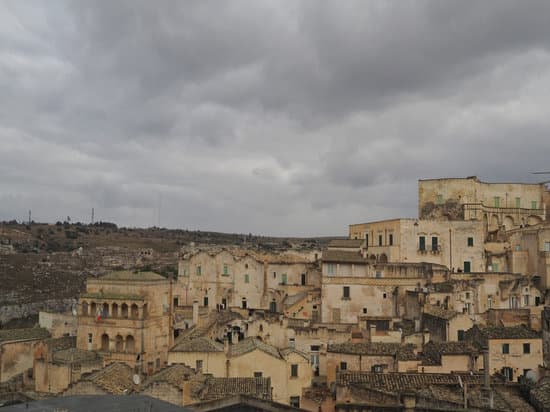Italy has long been a dream destination for travelers around the world. With its rich history, stunning landscapes, and mouthwatering cuisine, it’s easy to see why. However, before packing your bags and jetting off to this enchanting country, you may have one pressing question on your mind: Is it safe to travel to Italy in 2019?
In this article, we will delve into the current state of safety in Italy, addressing any concerns or issues that may be relevant to tourists. We will analyze crime rates in popular tourist destinations and provide safety precautions that travelers can take to ensure a secure trip. We will also examine the risk of natural disasters and discuss the preparedness measures taken by the government and local authorities.
Additionally, we will explore counterterrorism efforts in Italy and evaluate the effectiveness of security measures. This section will also highlight any recent incidents or threats that may affect your travel plans. Furthermore, we will discuss the travel warnings and advisories issued by diplomatic authorities and offer insights on how to stay updated on safety information.
Before embarking on your Italian adventure, it is crucial to be informed about health and medical facilities in the country. We will address the level of healthcare services available to tourists, including emergency care and pharmacies. Moreover, we will inform you about any specific health concerns that you should be aware of during your visit.
Stay tuned as we share testimonials and personal experiences from recent visitors who can attest to the safety of traveling to Italy in 2019. Their stories will provide valuable insight into what you can expect during your own journey.
So sit back, relax, and let us guide you through everything you need to know about traveling safely in Italy this year.
Understanding the Current State of Safety in Italy
Italy is a beautiful country with a rich cultural heritage that attracts millions of tourists each year. However, before planning your trip, it is important to understand the current state of safety in the country. Italy, like any other destination, has its own unique safety considerations that travelers should be aware of.
In terms of general safety, Italy is considered to be a safe country for tourists. The crime rate in popular tourist destinations is relatively low compared to other European countries. However, it is important to exercise caution and take necessary precautions to ensure a safe trip.
Petty crimes such as pickpocketing and theft can occur in crowded areas or tourist hotspots, so it’s advisable to keep an eye on your belongings at all times. Utilizing anti-theft bags or wallets and keeping valuables secure can help prevent any potential incidents.
One issue that may concern some travelers is the presence of street vendors and scam artists who target tourists. These individuals often operate around major tourist attractions or busy streets and may try to sell counterfeit goods or demand exorbitant prices for their products or services.
It’s important to be aware of these scams and avoid engaging with suspicious individuals. Additionally, respecting local customs and laws while traveling in Italy will go a long way in ensuring a safe and respectful experience.
To further enhance your safety while traveling in Italy, here are some key tips:
- Stay informed about your surroundings and be aware of any recent developments.
- Follow the advice of local authorities and adhere to any security measures.
- Register with your embassy or consulate upon arrival for emergency assistance.
- Keep copies of important travel documents such as passports and identification.
- Use reliable transportation methods and be cautious when using public transport.
By being proactive about your personal safety while traveling in Italy, you can have an enjoyable trip without unnecessary worries.++++.
Crime Rates and Safety Precautions
Italy is generally a safe country for tourists, with low crime rates compared to other European countries. However, it is important for travelers to take certain safety precautions to ensure a safe trip. Crime rates can vary depending on the region and city, so it is essential to be aware of the situation in your specific destination.
When visiting popular tourist destinations such as Rome, Florence, and Venice, pickpocketing and petty theft are the most common types of crimes that tourists may encounter. These areas are often crowded with tourists, making them attractive to pickpockets. It is advisable to keep valuable belongings secured and avoid carrying large amounts of cash or wearing expensive jewelry. Instead, opt for a money belt or a secure bag with multiple compartments.
In addition, be cautious when using public transportation in busy areas. Keep an eye on your bags at all times and be aware of your surroundings. It is also recommended to use well-lit streets when walking at night and avoid unfamiliar or isolated areas.
Here are some key safety tips to consider during your trip to Italy:
- Be mindful of your personal belongings at all times.
- Use hotel safes or secure lockers provided by attractions for storing valuable items.
- Avoid displaying flashy jewelry or carrying expensive gadgets openly.
- Be cautious when accepting drinks from strangers or leaving them unattended.
- Research reputable taxi companies and use licensed taxis.
- Use ATMs located in well-lit areas or inside banks.
- Stay informed about local scams targeted towards tourists.
By following these safety precautions, you can minimize the risk of becoming a victim of crime while enjoying your trip to Italy.
| City | Crime Rate |
|---|---|
| Rome | Low to Moderate |
| Florence | Low |
| Venice | Low to Moderate |
Natural Disasters and Safety Measures
Italy is a country known for its rich history, breathtaking landscapes, and vibrant culture. However, like any other destination, it is essential to consider the potential risks associated with natural disasters before planning your trip. Italy is located within an area prone to seismic activity and also experiences occasional flood risks. In this section, we will delve into these natural disasters and discuss the safety measures taken by the government and local authorities to ensure the safety of tourists.
1. Earthquakes:
Italy is well-known for its seismic activity due to its location along the boundary of two major tectonic plates, the Eurasian Plate and African Plate. As a result, earthquakes occur frequently throughout the country. While most earthquakes are minor, Italy has experienced devastating earthquakes in the past.
To prioritize tourist safety in case of earthquakes, Italian authorities have implemented various measures. There are strict building codes in place that ensure structures are resistant to seismic activity. Additionally, emergency response teams are well-prepared to respond swiftly in case of an earthquake event. It is crucial for travelers to familiarize themselves with evacuation procedures provided by accommodation providers or consult local authorities during their stay.
2. Floods:
Flooding can be another concern when visiting certain regions in Italy, particularly during periods of heavy rainfall. Low-lying areas and coastal regions may be more susceptible to flooding.
The Italian government has invested significant efforts into flood prevention and mitigation measures. This includes maintaining a sophisticated monitoring system that alerts authorities of rising water levels and potential flood risks. Alongside these technological advancements, authorities have developed effective emergency response plans to quickly evacuate residents and tourists from affected areas.
Travelers are advised to stay updated on weather advisories issued by local authorities when visiting areas susceptible to flooding. It is also recommended that they familiarize themselves with evacuation routes and have emergency contact information readily available.
While it is important for tourists to be aware of the risks associated with natural disasters in Italy, it is equally essential to note that the government and local authorities have taken significant measures to ensure the safety of both residents and visitors. By staying informed, following safety guidelines, and being prepared for any eventuality, travelers can enjoy their trip while mitigating potential risks.
Remember to check out our next section on terrorism and security measures in Italy to gain a comprehensive understanding of the safety landscape before planning your trip.
Terrorism and Security Measures
Efforts in Counterterrorism
Italy has been actively involved in counterterrorism efforts to ensure the safety and security of its citizens as well as tourists visiting the country. The Italian government has implemented various measures to prevent and combat terrorism, including the establishment of specialized law enforcement agencies and intelligence units. These agencies work together to monitor and gather information on potential threats, investigate suspicious activities, and apprehend individuals involved in terrorist activities.
Furthermore, Italy collaborates closely with international partners in sharing intelligence and conducting joint operations to disrupt terrorist networks. The country is an active member of NATO and works closely with EUROPOL and INTERPOL to exchange information on potential threats and improve security coordination.
Effectiveness of Security Measures
The effectiveness of Italy’s security measures in countering terrorism can be seen through its successful track record in preventing major attacks. The country has a robust system of surveillance cameras installed in public areas, transport hubs, and tourist attractions, which helps enhance situational awareness for security forces. In addition, there are increased police patrols in major cities like Rome, Florence, Venice, and Milan to deter any potential threats.
Moreover, strict border controls are enforced at airports, seaports, and land borders to prevent the entry of individuals involved in terrorist activities. These stringent security measures have significantly contributed to maintaining a safe environment for both locals and tourists.
Recent Incidents or Threats
While Italy remains generally safe from acts of terrorism, it is important for travelers to stay informed about any recent incidents or threats that may affect their travel plans. It is worth noting that no significant terrorist attacks targeted at tourists have occurred recently.
However, it is advisable for visitors to remain vigilant while traveling in crowded places or attending large-scale events where there might be an increased risk due to the possibility of opportunistic attacks. It is also recommended that travelers follow the guidance provided by local authorities and report any suspicious activities to the police.
Overall, with its robust counterterrorism efforts and effective security measures, Italy continues to be a safe destination for tourists. However, it is always recommended for travelers to stay updated on the latest safety information and exercise necessary precautions during their visit.
Travel Warnings and Advisories
When considering whether it is safe to travel to Italy in 2019, it is important to be aware of any travel warnings and advisories that have been issued by diplomatic authorities. These warnings are typically based on the evaluation of potential risks to travelers, including political unrest, crime rates, natural disasters, and terrorism threats.
While these advisories should not discourage one from traveling altogether, they provide valuable information for tourists to make informed decisions and take necessary precautions during their trip.
The relevance of these travel warnings and advisories can vary depending on factors such as the specific location within Italy, the duration of your stay, and the activities you plan to engage in. For example, areas with higher crime rates or a history of political instability may require extra caution compared to more tourist-friendly locations. It is essential for travelers to research and closely monitor the current situation in Italy before embarking on their journey.
To stay updated on safety information in Italy, tourists should regularly check the websites or mobile applications provided by their home country’s government or embassy. These platforms often offer up-to-date travel advisories specifically tailored for citizens traveling abroad.
In addition, subscribing to email alerts or following social media accounts of relevant authorities can ensure that you receive timely updates regarding any changes in safety conditions. It is also recommended to register your trip with your country’s embassy or consulate so that they can reach out to you in case of an emergency.
| Travel Warning/Advisory Level | Description |
|---|---|
| Level 1: Exercise Normal Precautions | This level indicates a low risk for travelers. However, it is still advisable to remain vigilant and aware of your surroundings. |
| Level 2: Exercise Increased Caution | This level suggests a higher risk, possibly due to specific events or conditions in certain areas. Travelers should take extra precautions and stay updated on local news and developments. |
| Level 3: Reconsider Travel | This level advises reconsidering travel plans due to significant safety concerns, such as high crime rates, political instability, or ongoing conflicts. Travelers should carefully assess the risks and consult with relevant authorities. |
| Level 4: Do Not Travel | This level indicates the highest risk category, typically associated with war zones or extreme instability. Tourists are strongly advised against traveling to these areas. |
By evaluating travel warnings and advisories issued by diplomatic authorities, tourists can make informed decisions about their trip to Italy. Remember that these warnings are not meant to discourage travel altogether but rather provide valuable information for you to plan your journey responsibly. It is crucial to stay updated on safety information before and during your trip in order to have a safe and enjoyable experience.
Health and Medical Facilities
Health and Medical Facilities: Addressing the level of healthcare services in Italy, including emergency and medical care, availability of pharmacies, and any specific health concerns tourists should be aware of in 2019.
Italy is known for its excellent healthcare system, which consistently ranks among the top in the world. Tourists can feel reassured that they will have access to quality medical care if needed during their trip. The country has a comprehensive network of hospitals, clinics, and pharmacies that cater to both locals and visitors.
In case of emergencies, Italy has a well-developed emergency medical service (EMS) system. The Emergency Medical Dispatch (EMD) number in Italy is 118, which connects callers to trained personnel who are able to assess the situation and coordinate an appropriate response. It is important for travelers to familiarize themselves with this number before their trip as it is the primary means of accessing emergency medical care.
Pharmacies are readily available throughout Italy, even in smaller towns and rural areas. They can easily be recognized by the green cross displayed outside. Most pharmacies operate on regular business hours but there are also some that offer after-hours services. In larger cities, there are often one or more pharmacies that remain open 24/7 for emergencies.
While healthcare services in Italy are generally exceptional, there are a few specific health concerns that tourists should be aware of. Firstly, it is advisable for visitors to have comprehensive travel insurance that covers medical expenses as treatment costs can be high without insurance coverage. Additionally, tourists should take precautions against common illnesses such as foodborne illnesses by practicing good hygiene and consuming only well-cooked food from reputable establishments.
It is also recommended that travelers check if any specific vaccinations or preventive measures are recommended for their visit to Italy. This can be done by consulting with a healthcare provider or referring to travel advisories issued by health authorities in their home country.
Overall, tourists can rest assured knowing that Italy offers a high level of healthcare services, including emergency care and access to pharmacies. Taking proper precautions and having appropriate travel insurance will help ensure a safe and worry-free trip.
Safety Tips for Traveling in Italy
When traveling to Italy in 2019, it is important for tourists to prioritize their safety. By taking a few simple precautions and following some practical advice, visitors can have a safe and enjoyable trip. Here are some key safety tips for traveling in Italy:
- Stay informed: Before your trip, research the areas you plan to visit and stay updated on any safety concerns or travel advisories. Register with your country’s embassy or consulate in Italy so that they can reach you in case of an emergency. It is also advisable to download travel apps or subscribe to local news channels to receive real-time updates.
- Respect local customs and laws: Familiarize yourself with the local customs, traditions, and laws of Italy. Be respectful when visiting religious sites, dress appropriately, and follow any guidelines or restrictions. This will help you avoid any unnecessary conflicts or misunderstandings and ensure a positive interaction with locals.
- Avoid scams: Unfortunately, tourist destinations are often targeted by scammers seeking to take advantage of unsuspecting visitors. Beware of common scams such as pickpocketing, street games meant to distract you while someone steals your belongings, overcharging at restaurants or taxis, and fake petitions or fundraisers. Stay vigilant, keep your personal belongings secure, and if something seems too good to be true, it probably is.
- Secure personal belongings: Keep your personal belongings safe at all times by using a money belt or hidden pouch for important documents like passports and credit cards. Don’t leave bags unattended or easily accessible in crowded areas. When dining out or sitting in outdoor cafes, keep bags close by your side and consider using anti-theft bags that have reinforced straps or locking mechanisms.
By following these safety tips during your trip to Italy in 2019, you can enhance your travel experience while ensuring your overall well-being. Remember that staying informed, respecting the local culture and laws, avoiding scams, and securing your personal belongings are essential for a safe and enjoyable journey.
Testimonials and Personal Experiences
Italy continues to be a popular tourist destination, attracting millions of visitors each year. To help alleviate any concerns about safety, it is important to hear from those who have recently traveled to Italy and can speak directly to their experiences. By sharing real-life stories and personal testimonials, we can gain a better understanding of the safety conditions in the country.
Many tourists who have visited Italy in 2019 have reported positive experiences in terms of safety. They felt secure throughout their trip and did not encounter any major issues or incidents. From exploring the streets of Rome to wandering through the historic towns of Tuscany, travelers found that Italy was generally safe for tourists.
In particular, visitors praised the visible presence of law enforcement officers in popular tourist areas. The increased security measures undertaken by Italian authorities have been effective in maintaining a safe atmosphere for tourists. Additionally, many tourists indicated that they felt comfortable walking around at night and experienced little to no harassment or pickpocketing incidents.
Overall, these personal experiences support the notion that traveling to Italy in 2019 is generally safe. However, as with any travel destination, it is always recommended to exercise caution and follow basic safety guidelines. By staying alert, being aware of your surroundings, and taking necessary precautions such as securing your belongings and avoiding isolated areas at night, you can help ensure a safe and enjoyable trip to Italy.
Conclusion
In conclusion, after examining the current state of safety in Italy, including crime rates, natural disasters, terrorism threats, travel warnings, and healthcare facilities, it can be said that it is generally safe to travel to Italy in 2019. While no destination is completely risk-free, Italy has taken various measures to ensure the safety of tourists.
The crime rates in popular tourist destinations in Italy are relatively low compared to other countries. However, it is still important for travelers to take necessary precautions such as being aware of their surroundings, securing personal belongings, and avoiding crowded areas at night. Additionally, the government and local authorities have implemented preparedness measures to respond effectively to natural disasters like earthquakes and floods.
Italy has also made significant efforts in counterterrorism and has a robust security system in place. While sporadic incidents may occur, overall security measures are effective in preventing major terrorist attacks. Travel warnings and advisories issued by diplomatic authorities should be considered by travelers but should not deter them from visiting the country. It is essential for tourists to stay informed about any potential risks and make informed decisions based on reliable sources of information.
Furthermore, Italy offers good healthcare services with a wide availability of pharmacies and medical facilities. Tourists should be aware of any specific health concerns such as insect-borne diseases or allergies and take necessary precautions. By following basic safety tips such as respecting local customs and laws, avoiding scams, and staying informed about current events, tourists can have a safe and enjoyable trip to Italy.
Ultimately, the decision to travel to Italy in 2019 should be based on an individual’s own assessment of the risks involved. By considering the information provided here and taking necessary precautions while traveling, individuals can have a positive experience exploring this beautiful country.
Frequently Asked Questions
How safe is Italy right now?
Italy is generally considered to be safe for tourists. Like any country, it is important to exercise caution and be aware of your surroundings, particularly in crowded tourist areas where pickpocketing may occur. Petty crimes such as theft and scams can happen in popular tourist spots, but violent crime rates are relatively low.
It is always advisable to take common safety precautions such as safeguarding your belongings, avoiding isolated areas at night, and being cautious on public transport. Additionally, it is recommended to stay informed about any travel advisories issued by your home country’s government before visiting Italy.
Is Italy friendly to American tourists?
Italians are generally welcoming and friendly towards American tourists. Many locals in major tourist destinations can communicate in English and will often go out of their way to assist visitors with directions or recommendations.
Italians appreciate efforts made by tourists to respect local customs and show an interest in their culture, such as trying out basic Italian phrases or understanding dining etiquette. However, like with any destination, it is important for travelers to approach locals with politeness and courtesy, just as they would when interacting with people from any other country.
What is the current news in Italy?
News in Italy encompasses a wide range of current events across various aspects of life including politics, economics, culture, sports, and more. As of now (based on the given date), some notable news topics might include updates on the political landscape following recent elections or changes in the government’s policies or priorities. Economic developments or challenges facing the country could also be prominent news subjects.
Additionally, events related to cultural festivals, art exhibitions or sporting events would attract attention both within Italy and internationally. It is advisable to consult reliable news sources such as newspapers or reputable online platforms for the most accurate and up-to-date information regarding news in Italy.

I’m a passionate traveler, writer, and Italophile. My fascination with Italy’s history, art, and culture has led me on countless adventures across the Italian landscape. Through “I Live Italy,” I share my love for this extraordinary country and aims to inspire others to explore its boundless beauty.





